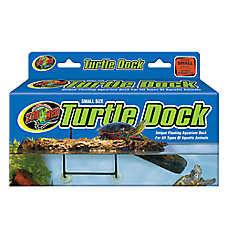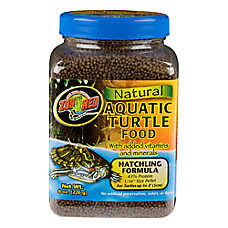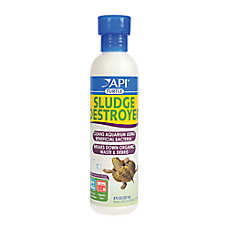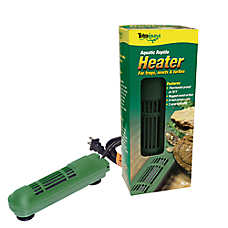So, You Want a Turtle or Tortoise?
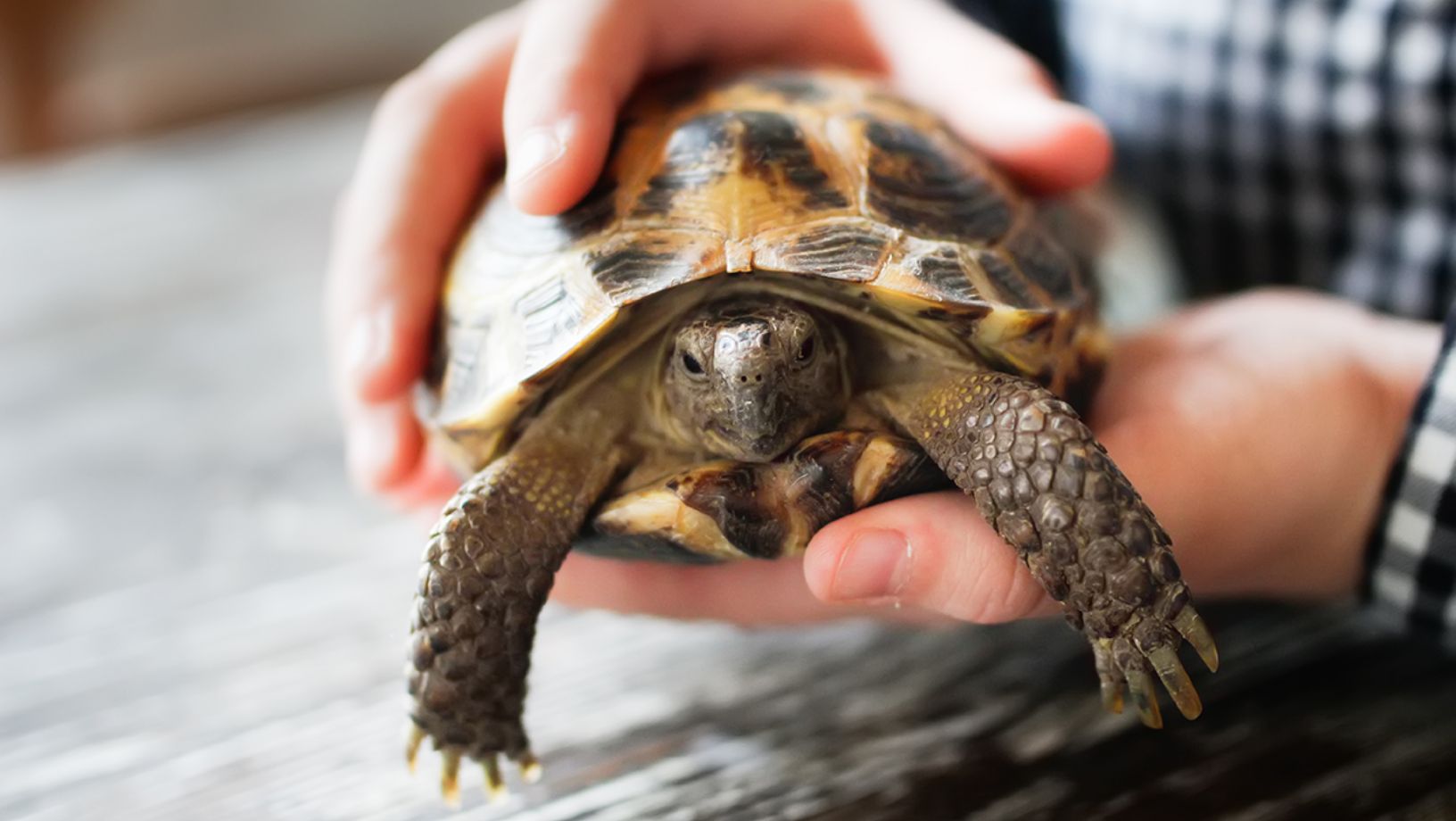
4 things to know about turtles and tortoises
- Turtles and tortoises are two different types of reptiles
- They’re best for kids 12 and up
- They like a warm environment
- They can live for 30 years or more
If you want to quickly tell the difference between a turtle and tortoise, check out their toes. Tortoises are landlubbers, with feet that look a little elephant-like. Water-loving turtles tend to have flipper-feet to help them swim.
While tortoises and turtles enjoy many of the same things, their diets and habitats aren’t interchangeable. Even within their own groups, turtles and tortoises come in a lot of different varieties.
Though fascinating to watch, these shy, shelled reptiles aren’t big on physical affection and can get stressed out if you handle them too much.
Always supervise kids when playing with these pets, and always wash your hands after touching your reptile.
Turtle tips
Turtles need a minimum 30-gallon size aquarium with a screened top. Their habitat should include mostly water, plus a bit of land for basking.
Turtles eat a combination of vegetables, turtle food and, depending on the species, insects.
Types of Turtles
African Aquatic Sideneck
- Appearance: Unique “folding” neck
- Adult size: 8 inches
- Habitat: Mostly aquatic
- Diet: Omnivore
Central American Wood
- Appearance: Boldly patterned shell
- Adult size: 9 inches
- Habitat: Mix of shallow water and land
- Diet: Mostly herbivore
Painted
- Appearance: Low-slung, medium size
- Adult size: 7 inches
- Habitat: Aquatic with some land
- Diet: Omnivore
Caspian Pond
- Appearance: Colorful red shell
- Adult size: 9 inches
- Habitat: Semi-aquatic
- Diet: Omnivore
Red-Eared Slider
- Appearance: Green, black and red markings
- Adult size: 11 inches
- Habitat: Aquatic with some land
- Diet: Omnivore
Tortoise tips
Tortoises require a terrarium of 40 gallons or bigger. They don’t swim but do need a bowl of shallow water for drinking and bathing. Tortoises prefer a warm environment; specific heat and humidity needs depending on the species.
Tortoises are essentially herbivores. They like to eat a variety of vegetables, fruit and tortoise food.
Types of Tortoises
CB Cherry Head Red Footed
- Appearance: Red markings, bulbous nose
- Adult size: 12 inches
- Habitat: Land
- Diet: Herbivore, loves fruit
CB Red Footed
- Appearance: Red markings, bulbous nose, flared shell
- Adult size: 12 inches
- Habitat: Land
- Diet: Herbivore
Greek
- Appearance: Sandy colored
- Adult size: 12 inches
- Habitat: Land
- Diet: Herbivore
Russian
- Appearance: Green and relatively small
- Adult size: 8 inches
- Habitat: Land
- Diet: Herbivore
